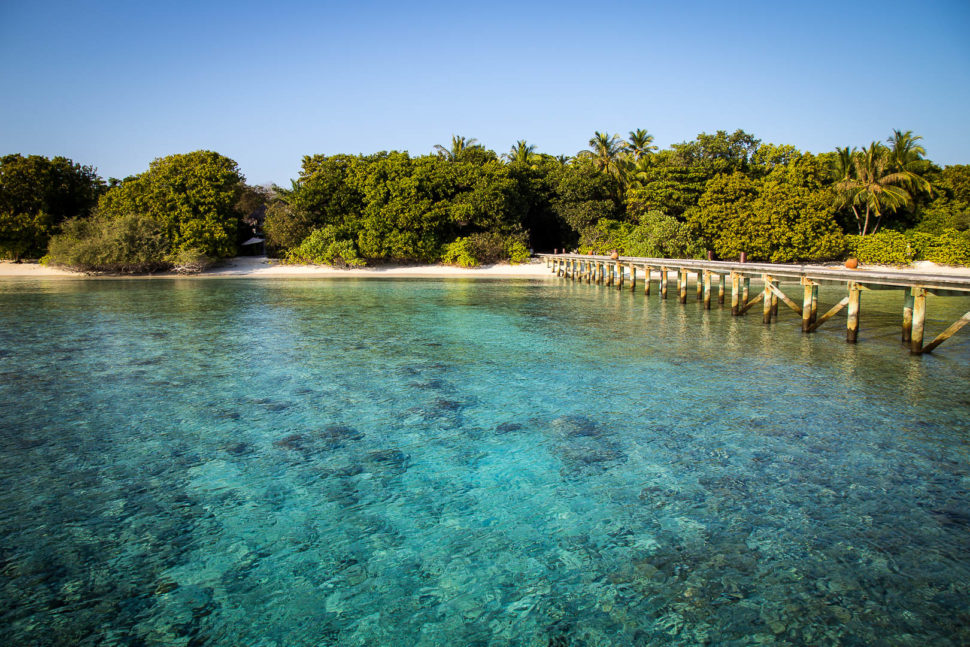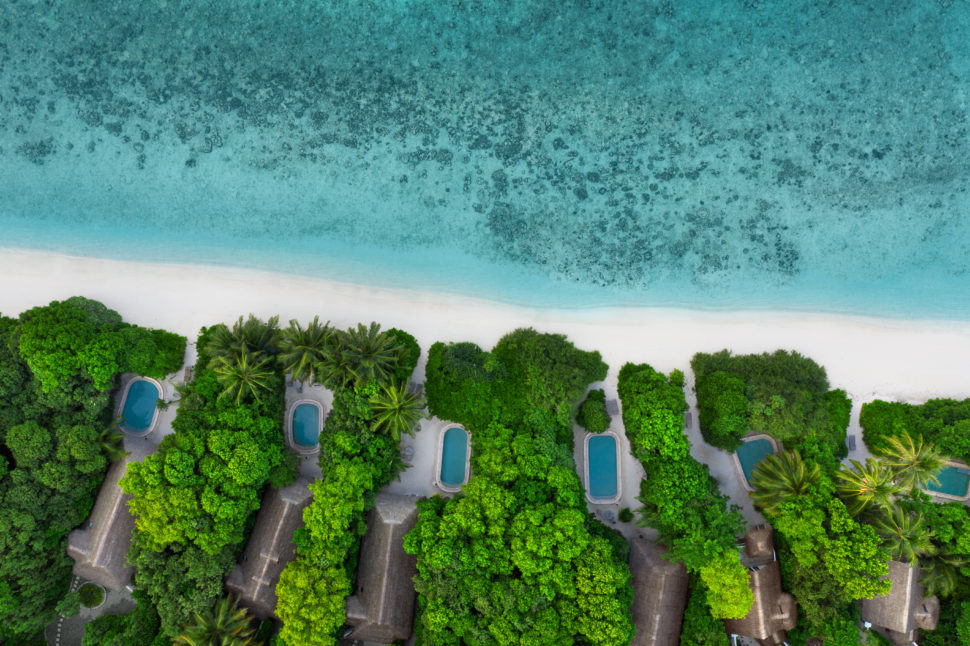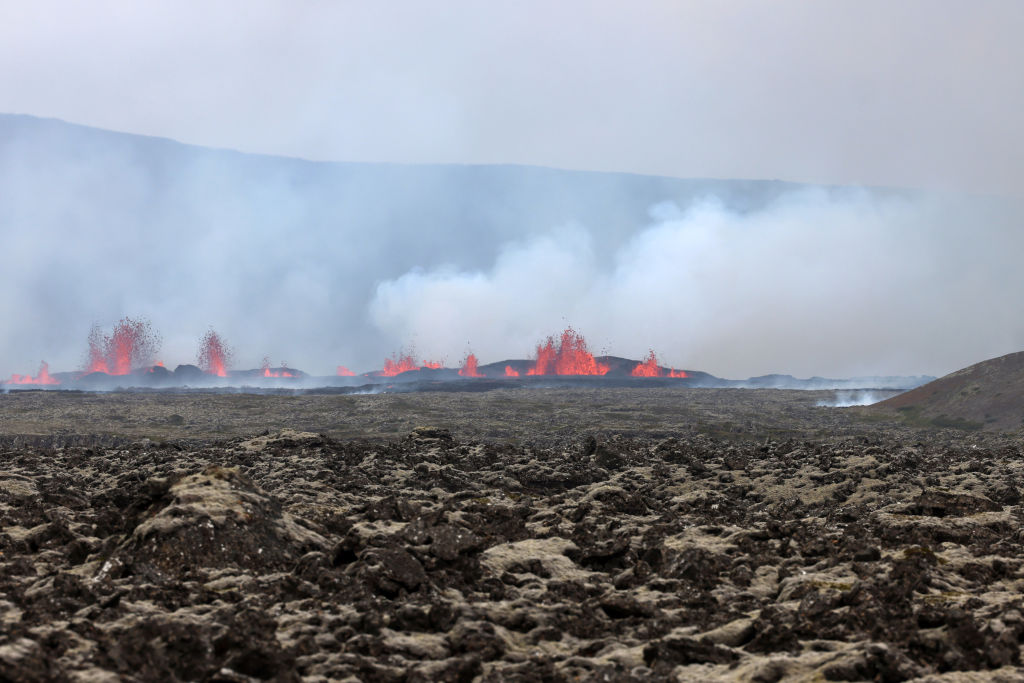When arriving to Soneva Fushi, don’t be alarmed when the hospitality barefoot butlers first greet you and tell you to remove your pair of shoes before stepping onto the resort’s dock. This is a part of an entire culture at the resort that intimately connects you to the natural world around you through the very first step you take onto the island’s shore.
Once your feet submerge into the white granulated cooling sand, the appreciation for the ethos that the Soneva resort upholds becomes immediate. That is, the overarching resort’s philosophy that supports the idea that we are all grounded by our immediate surroundings, especially in a utopian place like Soneva Fushi.

Considering a high-functioning resort that has hundreds of international tourists sifting through the retreat every week, there must be tons of waste following. Soneva Fushi proves that it is as much a luxury resort as it is its own thriving, sustainable oasis. Founder and CEO, Sonu Shivdasani makes tenacious efforts to push the Maldivian resort to the forefront of modern sustainability in the hospitality industry.
Shivdasani not only uses a majority of the resort’s waste to energize the retreat’s many amenities, but also is taking initiatives on improving the ocean through rejuvenating coral reefs, minimizing carbon gases, and reducing trash.
“Over the years, I have come to understand [Lao Tzu’s philosophy] and have realized that [environmental] crises are opportunities to learn, grow and develop,” Shivdasani told Travel Noire. “Certainly, we have no control over the hand that we are dealt, but we have total control on how we play it.”
The Maldives hideaway is a 25-year-old investment that Sonu Shidasani and his wife, Eva, have pioneered so that they both could simply enjoy the untouched culture of their own remote island.
“We decided we wanted to open a resort like no other, whilst ensuring we protect the environment. We believe that a company must have a clear purpose beyond turning a profit. It must serve and contribute to the society in which it operates and should not negatively impact the environment in which it is located.”

In 1995, Soneva Fushi first opened its port for global guests to indulge in the slowed pace of a luxurious lifestyle. Although the resort’s opulent villas and immersive restaurants are grandiose as ever, Shidasani implements sustainable procedures to maintain the resort’s positive environmental impact on the land it resides on and the Indian Ocean that surrounds it.
“Soneva Fushi was the first castaway resort in the Maldives, pioneering a trend for back-to-nature luxury holidays. What we also did not realize was that our decision helped transform the Maldives from a three-star high volume destination into the luxury destination it is today.”

“With our food and beverage offerings we do our best to source as locally as possible, be that from our organic gardens, from the plentiful seas that surround our islands, or sourced from nearby islands and countries,” the resort founder stated. “Sourcing locally has two main benefits: firstly, that our ingredients don’t have to travel so far to reach our guests’ plates, thus keeping their nutritional values intact; secondly, that it also reduces our carbon emissions. There is absolutely no detrimental impact on the environment and our guests savor their meals with the knowledge that the food they consume is free of chemicals, fair-trade, and sourced sustainably.”
Outside the farm-to-table cuisine that is cared for by world-class agricultural researchers and gardeners, Soneva Fushi is always welcoming back repeated guests who have fallen completely in love with the resort’s philosophies and bring back friends and more members of their extended families. The acclaimed-resort will be introducing the first ever zip-line dining experience in the next few months, which will allow for guests to have the adventure of a lifetime by soaring new heights through the jungle while enjoying the best food they will probably ever get their mouths on.

“Using Mineral Accretion Technology (MAT) in collaboration with Coralive, a non-profit organization based in Switzerland focusing on protection and restoration of corals and marine resources. The [supervised] nurseries will harvest 50,000 coral fragments per year with over 400 table nurseries being placed into the water. The project aims to improve the state of habitat and resilience of the ecosystem as years of degradation have reduced the coral cover around the island, we also plan to bring a larger variety of corals to the reefs surrounding Soneva Fushi as we have only two prodominant coral genus (Poclipora and Porites).”
Soneva Fushi is mere evidence that a luxury resort can definitely shift the conversation on sustainability and what that looks like in the future. With the islands of the Maldives being jeopardized by global warming, Soneva Fushi and the resort’s leader is paving the way for luxury resorts to not only provide the best service for their guests but also, to the land the remote hideaway occupies.
The Maldivian dreamscape is revolutionizing the way the hospitality industry can reverse the declining health of the world. Ultimately, solidifying the fact, that a part of humanity is preserving the Earth and its mesmerizing natural features.





